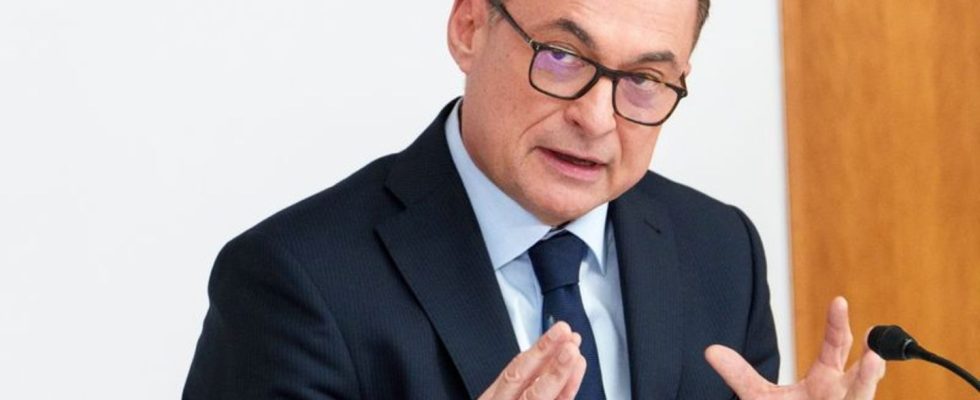Economic policy
Bundesbank President: Right-wing extremism threatens prosperity
Joachim Nagel is President of the Bundesbank and warns against right-wing extremists. photo
© Andreas Arnold/dpa
The Bundesbank President emphasizes the strength of the German economy. But he also points to a threat: right-wing extremism. How he justifies his assumption.
Bundesbank President Joachim Nagel sees the emerging Right-wing extremism as a threat to prosperity in Germany. “I appeal to everyone not to take the danger of right-wing extremism lightly,” Nagel told the newspapers of the Funke media group.
“Right-wing extremists also scare away investors and skilled workers from abroad. This threatens our prosperity,” warned Nagel. As a citizen, he is very concerned about this development. “That’s why I recently took part in a pro-democracy rally in Frankfurt for the first time in my life.”
“We are not the sick man of Europe”
At the same time, Nagel appealed to the business associations not to badmouth the economic situation in Germany. He doesn’t want to downplay the enormous challenges. “But we shouldn’t make the situation worse than it actually is. Otherwise no one will come to Germany and invest. We are not the sick man of Europe,” emphasized Nagel.
He is also not satisfied if the economy just stalls this year. However, Germany comes from a special situation because its large, open economy was particularly badly affected by the Russian war of aggression against Ukraine. At the same time, reference was made to the stable labor market. “Germany has almost full employment,” the Bundesbank President made clear.
However, Nagel called for more ambition in tax cuts and reducing bureaucracy. The Growth Opportunities Act contains lower tax relief than originally planned, but it is now important to actually implement it. The Federal Council allowed the slimmed-down law to pass. The relief volume in the Mediation Committee of the Bundestag and Bundesrat had previously been reduced from the previously planned 7 billion euros to 3.2 billion euros per year.

